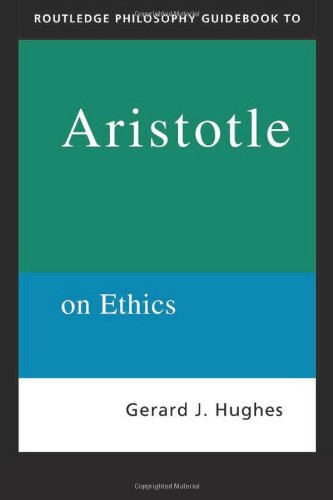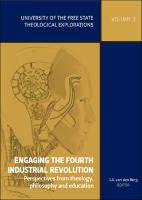
Ethical questions arise every day, presenting each of us with choices to make, and giving us the opportunity to do the right thing. How does society determine what the "right thing" is? Case studies of current events give us one way to study the choices others have made, and debate whether they were right or wrong.
The Ethics Unwrapped website lists a variety of case studies that can help you get started with research. Here are a few samples.
Bullfighting -- Is it art, sport, or just animal cruelty? Other ethical questions involving animals include fox hunting; zoo animals; and performing animals like those in circuses and movies.
Confederate flags, statues and monuments -- Are they honoring our ancestors who served in the Civil War? Or are they a form of hate speech that reinforces racial discrimination?
Female athletes -- Do the media treat women differently than men when reporting on sports stories? Should female athletes be paid at least as much as men, particularly when the women's teams win championships but the men in that same sport do not? One athlete who has been at the forefront of this debate is Megan Rapinoe, who played soccer for the NWSL team Seattle Reign FC and the U.S. Women's National Team.
Religious attire -- Does the government have the right to ban religious attire, such as the hijab or burka often worn by Muslim women (such as Congresswoman Ilhan Omar, who represents Minnesota)? Is it discrimination if the clothing worn by one religious group is targeted, but others, such as the habits worn by Catholic nuns, are allowed?
 Routledge Philosophy Guidebook to Aristotle on Ethics
by
Routledge Philosophy Guidebook to Aristotle on Ethics
by
 Engaging the Fourth Industrial Revolution: Perspectives From Theology, Philosophy & Education
by
Engaging the Fourth Industrial Revolution: Perspectives From Theology, Philosophy & Education
by
![]() A variety of films may be viewed online through the Films on Demand database. Watch the programs listed here by clicking on each title, or search the database to find videos on your choice of topics. This list contains just a sample of the many subjects covered by Films on Demand!
A variety of films may be viewed online through the Films on Demand database. Watch the programs listed here by clicking on each title, or search the database to find videos on your choice of topics. This list contains just a sample of the many subjects covered by Films on Demand!
Medical, scientific & bioethics topics
Segments of the series "What's the Right Thing to Do?"
The Internet provides access to a variety of information, but not all of it is accurate, reliable, current or unbiased. The websites listed below are maintained by reputable organizations and contain trustworthy information.
Encyclopedias
Internet Encyclopedia of Philosophy -- Provides detailed, scholarly, peer-reviewed information on key topics and philosophers in all areas of academic philosophy. A staff of 30 editors and approximately 300 authors hold doctoral degrees and are professors at universities around the world, most notably from English-speaking countries. This link will send you to the section of the website that covers Ethics.
Stanford Encyclopedia of Philosophy -- Organizes the writing of scholars in philosophy and related disciplines from around the world. To see the chapters on Ethics, click on the "Browse Table of Contents" icon, then select the letter "E" and scroll down to "Ethics."
Articles & Research Reports
Globethics.Net Library -- An online library providing access to full-text digital versions of approximately 200 journals, and more than a million documents, in the field of applied ethics. Many of the articles are available for free. The international scope of these journals provides a global perspective.
Hastings Center -- An independent, nonpartisan, interdisciplinary research institute and think tank. Their research and publications address social and ethical issues in health care, science, and technology, and shape ideas that influence key opinion leaders, including health policymakers, regulators, health care professionals, lawyers, legislators, judges, and others.
Case Studies
Ethics Unwrapped -- Learning materials collected by the Center for Leadership & Ethics at the University of Texas. Highlights include videos explaining various philosophical concepts and case studies of real-life ethical issues.
Art is a visual means of communicating feelings, opinions, memories, beliefs, values, and aspirations. It is the artist's way of sharing these messages, and their talent, with all who view their work. But art is also a commodity which can be bought, sold, inherited, owned, loaned -- and stolen. In recent years, countries that lost national treasures and antiquities during times of war and colonization have made some progress in having these items returned from foreign museums and collectors. In 2022, CNN reported that the U.S. Department of Justice had returned 30 objects of "extraordinary cultural value" to Cambodia, which had been looted and sold illegally during their civil war. But the phenomenon is not a modern problem; in ancient times, the Romans stole statutes and other artifacts from the Greeks -- just one of many empires that plundered cultural objects from a conquered civilization.
Another ethical concern among museums involves donations of art -- or money -- that were financed by illegal or morally questionable activities. In 2019, the Guggenheim Museum in New York, the Louvre in Paris, and many other major art institutions announced they would no longer accept funding from the Sackler family, whose vast wealth was generated in part by production and sale of the prescription opioid drug OxyContin.
Listed below are some books that discuss the history of stolen antiquities and art, and the efforts to return them. For more information, go to the Finding Articles in Databases tab to search for magazine and journal articles.
For more information on the recent U.S. Supreme Court decision that reversed Roe v. Wade, please visit the Abortion page in the Constitutional Law (POLS 105G) research guide.